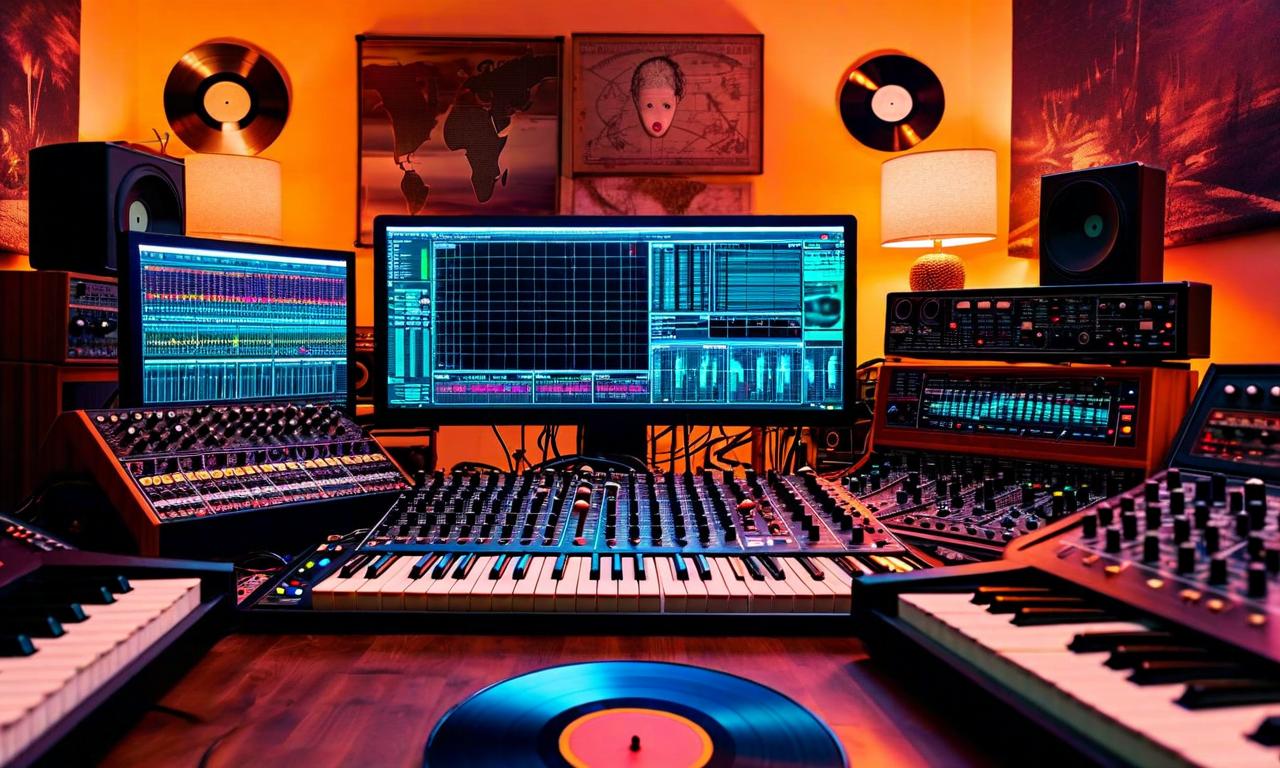Universal Music and Warner Music Near AI Licensing Deals with Tech Giants
Universal Music Group and Warner Music are finalizing licensing agreements with AI companies including Google, Spotify, and several startups. The deals aim to license music catalogs for AI training and music generation, establishing a legal framework for using copyrighted music in AI applications. The proposed compensation model is similar to streaming platforms, with micropayments for each use of copyrighted material. These agreements could provide legal clarity, structured compensation for rights holders, and boost innovation in AI-music applications.

*this image is generated using AI for illustrative purposes only.
Universal Music Group (UMG) and Warner Music are on the brink of inking groundbreaking licensing agreements with several artificial intelligence (AI) companies, potentially reshaping the landscape of music usage in AI applications. These deals, which are in the final stages of negotiation, involve tech giants like Google and Spotify, as well as AI startups including ElevenLabs, Stability AI, Suno, Udio, and Klay Vision.
Licensing Framework
The core of these negotiations revolves around licensing music catalogs for two primary purposes:
- Training large language models
- Creating AI-generated music
This move could establish a legal framework for AI companies to utilize copyrighted music, addressing ongoing disputes where AI firms have been accused of using such works without proper consent or compensation.
Compensation Structure
The music labels are pushing for a compensation model similar to that used by streaming platforms. Under this structure, each use of copyrighted material would trigger a micropayment, ensuring fair remuneration for rights holders.
Potential Impact
These agreements, if finalized, could have far-reaching implications for the music industry:
- Legal Clarity: The deals could provide a clear legal pathway for AI companies to use copyrighted music, potentially reducing the number of lawsuits from artists and rights holders.
- Structured Compensation: A formalized system for compensating music usage in AI applications could be established, benefiting artists and labels.
- Innovation Boost: With legal barriers addressed, this could pave the way for more innovative AI applications in music creation and distribution.
Industry Implications
The move by Universal Music Group and Warner Music signifies a proactive approach to adapting to the rapidly evolving landscape of AI in the music industry. By engaging with both established tech companies and emerging AI startups, these music giants are positioning themselves at the forefront of this technological shift.
As the negotiations near completion, the music and tech industries alike are watching closely. The outcome of these deals could set a precedent for how creative content is licensed and used in the age of artificial intelligence, potentially influencing similar agreements across various creative sectors.
While the specific terms of the agreements remain undisclosed, the music industry's willingness to engage with AI companies marks a significant step towards embracing new technologies while protecting the interests of artists and rights holders.
























